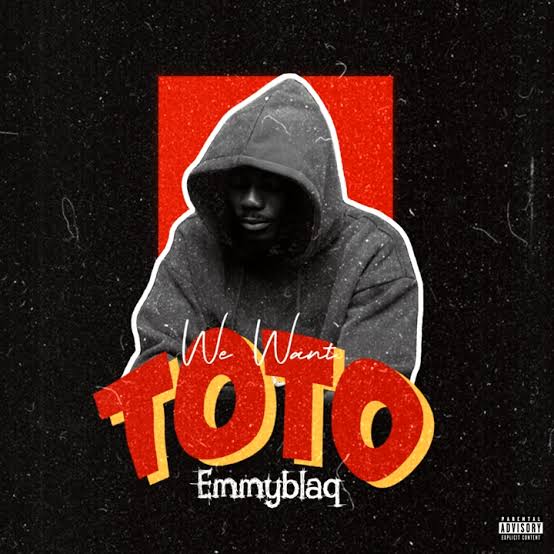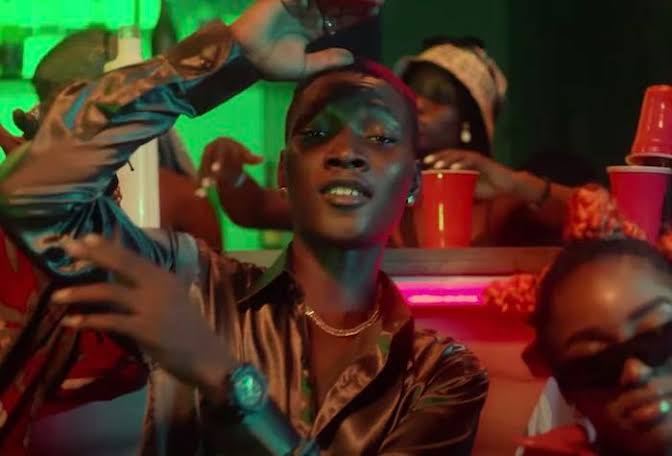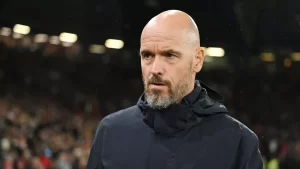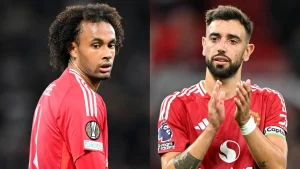Paul Pogba’s Revelations Highlight the Unfair Treatment of Solskjaer Compared to Erik ten Hag
Paul Pogba’s Revelations Highlight the Unfair Treatment of Solskjaer Compared to Erik ten Hag
Paul Pogba’s tenure at Manchester United was nothing short of dramatic, and recent comments from the French midfielder have shed light on a deeper issue at the club. In a candid reflection, Pogba exposed the reality of Ole Gunnar Solskjaer‘s reign and how the Norwegian manager was let down by circumstances beyond his control. The irony? Erik ten Hag, who took over the managerial reins, seems to have been provided with the resources and support that Solskjaer desperately lacked. This article explores how Pogba’s comments bring into focus the disparity in treatment between Solskjaer and Ten Hag, and what it means for Manchester United’s ongoing journey to reclaim former glory.
Paul Pogba’s time at Manchester United is often viewed through a lens of inconsistency and unfulfilled potential. Signed for a then-world-record fee, Pogba was meant to be the centerpiece of a United revival under multiple managers. Yet, his performances often fell short of expectations, and injuries, off-field distractions, and tactical shifts didn’t help his cause.
When Pogba made his comments about Solskjaer, it was clear that he felt a sense of empathy for his former manager. Pogba implied that Solskjaer, though a well-intentioned and capable coach, wasn’t given the same backing as other managers. This was particularly evident when compared to Erik ten Hag, who has enjoyed far more control over transfers, squad discipline, and tactical direction.
Pogba’s paradoxical role as both a key player and a symbol of the club’s deeper struggles shines a spotlight on how the Frenchman’s journey parallels the uneven support systems given to different United managers.
Ole Gunnar Solskjaer was brought in to stabilize a ship that had been rocked by the tenures of David Moyes, Louis van Gaal, and José Mourinho. As a former player and club legend, Solskjaer had the respect of the fans and players. His vision was clear: return Manchester United to its roots with attacking football, youth integration, and a strong team spirit.
However, Solskjaer faced a multitude of challenges that ultimately derailed his efforts. Pogba’s recent comments reveal that the Norwegian manager lacked sufficient support from the board and higher-ups at critical moments. Whether it was in the transfer market or in gaining full authority over the squad, Solskjaer was often left in a vulnerable position, unable to fully impose his vision.
In contrast, Erik ten Hag has enjoyed a more unified backing from the club, as seen in the authority he’s been given to discipline players and shape the squad according to his vision. Solskjaer’s time, however, was characterized by indecisiveness at the board level and a fractured dressing room. The result? A manager who, despite early promise, was left to fend for himself in one of the most unforgiving roles in world football.
One of the major differences between Solskjaer’s time and Ten Hag’s current reign lies in the handling of transfers. Pogba’s comments hint at a deeper issue—Solskjaer was often given players that didn’t align with his vision. The signings during his tenure, though high-profile, often felt mismatched with the playing style he sought to implement.
For example, the signing of Donny van de Beek, a talented midfielder, came with much fanfare but he was hardly ever used effectively under Solskjaer. This raised questions about whether the manager had full control over the club’s transfer dealings. While some signings, like Bruno Fernandes and Harry Maguire, made an impact, others failed to address key areas of concern.
Erik ten Hag, on the other hand, seems to have had a much clearer influence on transfers. The acquisitions of Lisandro Martínez, Antony, and Christian Eriksen speak to a more coherent recruitment strategy, one that aligns with Ten Hag’s tactical philosophy. The difference is stark: where Solskjaer was undermined by poor decisions in the transfer market, Ten Hag has been empowered to build a squad in his own image.
Another key issue raised by Pogba’s reflections is the notion of player power at Manchester United during Solskjaer’s reign. The Norwegian manager often faced challenges controlling a dressing room filled with big personalities. Pogba himself, along with players like Cristiano Ronaldo and Marcus Rashford, sometimes appeared to wield more influence than Solskjaer could comfortably manage.
In contrast, Ten Hag has been far more resolute in handling player discipline. His firm stance on Ronaldo’s behavior, including benching the superstar in favor of younger, hungrier players, showcased the Dutchman’s no-nonsense approach. This is a level of authority that Solskjaer never seemed to fully possess.
Pogba’s comments indicate that Solskjaer wasn’t given the full support to enforce his discipline on certain players, and this erosion of authority ultimately contributed to his downfall. Ten Hag’s experience at Ajax, where he worked with young talents while maintaining control, has given him the confidence to assert his authority at United—something Solskjaer struggled to achieve.
Pogba’s remarks don’t just reflect on Solskjaer as an individual, but rather on the broader structural failures at Manchester United during his tenure. While the club wanted to return to the success of the Sir Alex Ferguson era, it struggled to establish a clear, long-term plan to achieve that goal. Managers were hired and fired without a clear direction, and Solskjaer’s project was prematurely abandoned without addressing the root issues within the club.
By the time Erik ten Hag arrived, lessons had seemingly been learned. Ten Hag has been granted a level of control and support that Solskjaer could only have dreamed of. Whether it’s in transfers, dressing room management, or tactical evolution, the current United regime is far more aligned with the manager’s goals. Pogba’s comments serve as a reminder that Solskjaer wasn’t entirely responsible for his shortcomings—it was a failure at the institutional level.
Paul Pogba’s comments about Ole Gunnar Solskjaer shine a light on the challenges the Norwegian faced during his time at Manchester United. Unlike Erik ten Hag, who has been given the tools and backing to shape the team in his image, Solskjaer was left to contend with inadequate support, conflicting visions in the transfer market, and a lack of authority over player discipline. While Erik ten Hag is being positioned for success, Solskjaer’s tenure will be remembered as a missed opportunity—one where a promising project was undone by the very structure meant to support it. As Manchester United continues its journey toward reclaiming glory, it’s important to reflect on the lessons of the past and recognize how different eras can shape the fate of a manager.
Do you find Tmaq Media useful? Click here to follow our FB page!














